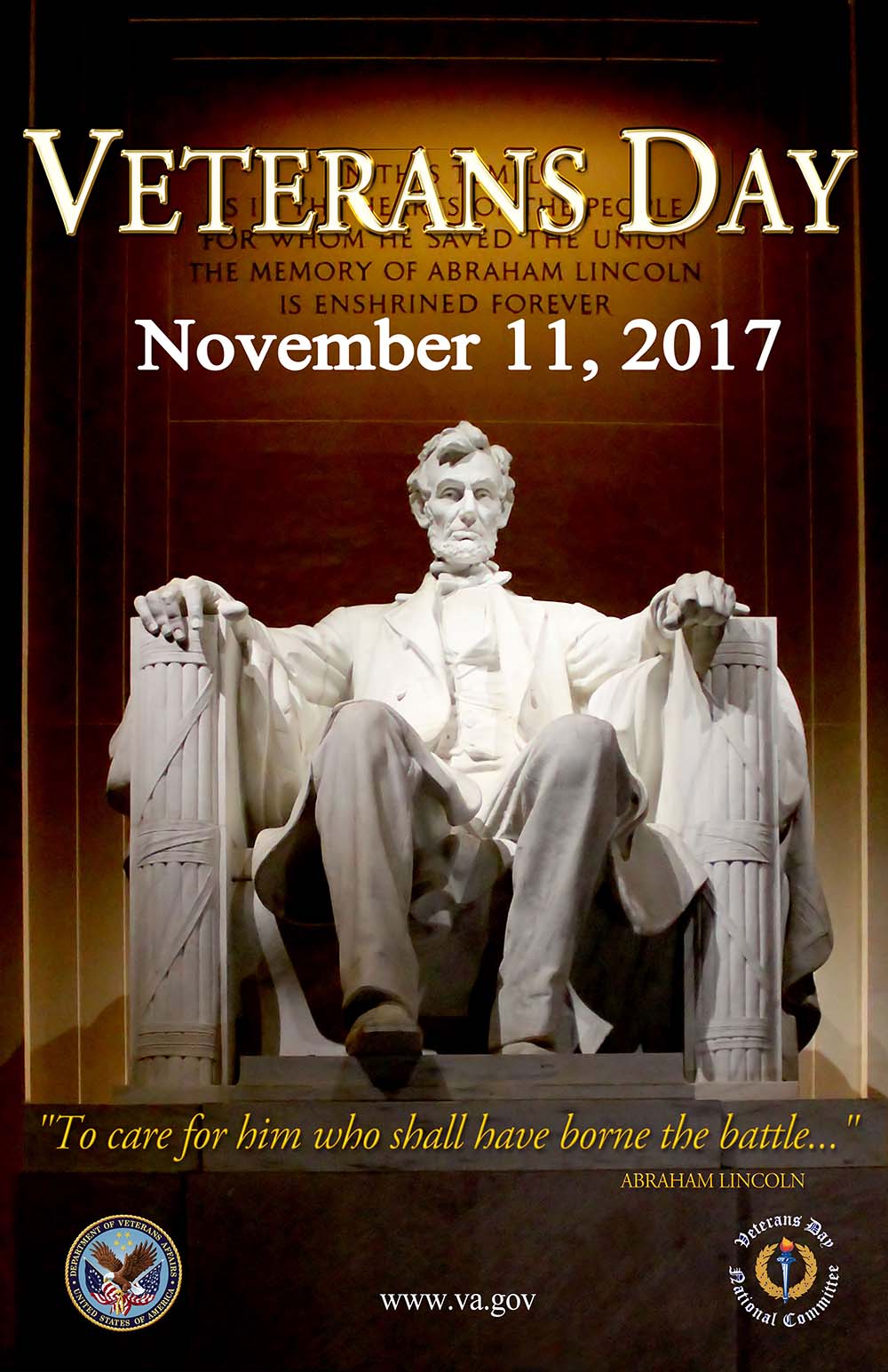3 things I’ve learned about veterans
November 9, 2017
In advance of Veterans Day, USC Chan alumna Alison Cogan shares a few thoughts about working with veterans from her perspectives as an occupational scientist and occupational therapist
By Alison Cogan MA ’12, PhD ’17
2017 commemorative Veterans Day poster/Department of Veterans Affairs’ National Veterans Outreach Office
Veterans Day marks a national holiday dedicated to recognizing all of the men and women who have served our country in the Armed Forces. At this time of year we often hear about the problems that this generation of veterans has experienced — posttraumatic stress disorder (PTSD), brain injury, homelessness, et cetera. These are all serious problems that need ongoing attention.
My own research has focused on service members and veterans who have experienced chronic problems after traumatic brain injury. However, in the course of my research, I have learned many positive things about this group that we need to keep in mind this Veterans Day.
- Veterans are a very diverse group! They come from all areas of the country and have a great variety of backgrounds. They have served across different eras and there is a wide age range even among those who have served in the recent conflicts in Afghanistan and Iraq. There are also an increasing number of female veterans compared to previous eras. Regardless of your work setting, you may want to ask your patients if they have served in the military.
- Military jobs and experiences are as diverse as the people who do them. In the media, we often hear about individuals who were injured in combat or who were involved in high-profile operations (like Seal Team 6). However, there are so many different military jobs, from auto mechanics who maintain Humvees to transport coordinators who gets supplies where and when they are needed to health care providers (including occupational therapists!). If you have a patient who is a veteran, ask about their military job and you may learn about unique skills and interests they have.
- Each service member and veteran I have met understood exactly how his or her job role contributed to the success of the mission. This awareness reminds me of good clinical reasoning — knowing exactly why we select different therapeutic approaches and how they relate to the patient’s goals. It can be motivating for patients (not only veterans) to understand how each activity in a therapy session can support their success.
Alison Cogan is currently completing a Veterans Affairs Advanced Fellowship in Polytrauma/Traumatic Brain Injury at the Washington DC VA Medical Center.
⋯
Next by tag Alumni ⟩ Clinical ⟩ Events ⟩






